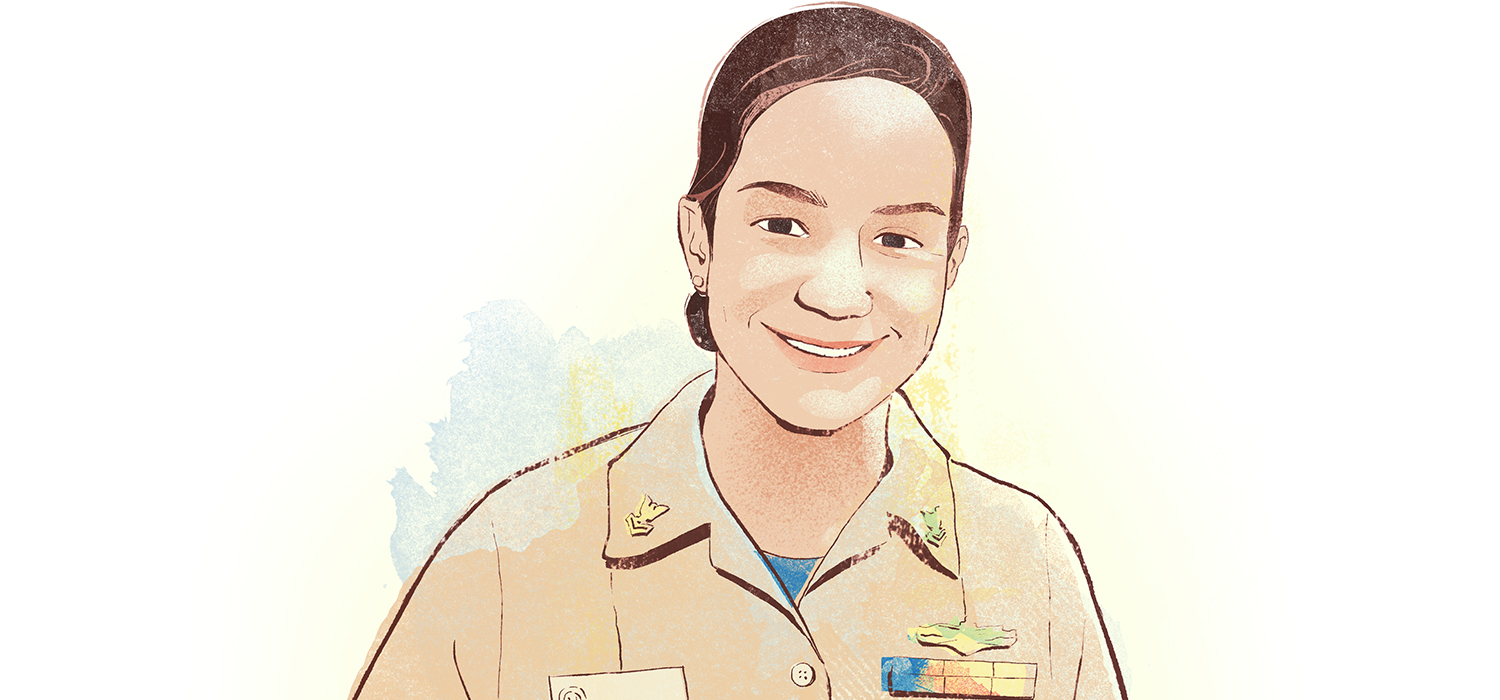After completing intensive training, a hospital corpsman takes a pledge that says they will hold the care of the sick and injured to be a privilege and a sacred trust. This pledge isn’t taken lightly, and becomes ingrained in those who dedicate their military career to providing medical care to those in need.
Hospital Corpsman Second Class Andora Remsing knows this pledge well. She serves as the assistant leading petty officer of the Pediatrics Clinic at Naval Medical Center Portsmouth (NMCP) where she leads and manages 29 sailors, supporting 89 providers, who ensure the delivery of timely and quality care to more than 15,500 patients. Every day, Remsing witnesses sailors’ dedication to their patients and their careers.
This is why she was determined to help them find opportunities to grow their careers by earning industry certifications that align with the work they pledge to do each and every day.
COOL opportunities
Remsing first contacted the Department of Navy Credentialing Opportunities Online (COOL) program to assist her junior corpsmen in taking advantage of the benefits this program offers. One of the main benefits that the COOL program provides is funding resources to pay for credential exams and maintenance fees. The Navy strongly advocates for the value of certification because it increases the professionalism of corpsmen. Earning credentials can help sailors work toward a promotion while serving. Credentials also help sailors transition into civilian healthcare roles after completing their military service.
“I was trying to help my junior corpsmen find out how to get nationally certified as medical assistants,” explains Remsing. “I found that not only can corpsmen take the medical assistant certification exam, but they may be qualified, based on their training, to take up to a total of six different national certification exams.”
Bringing certification on base
After learning more about the certification process, Remsing was convinced that she needed to bring certification to NMCP. She worked with National Healthcareer Association (NHA) to make NMCP an official site where corpsmen could take certification exams.
“While corpsmen are in the Navy, national certifications add to their confidence and knowledge,” she says. “It also puts them one step ahead for future success by preparing them for the civilian world. Corpsmen who are nationally certified can start a [civilian] career as soon as they transition out of the Navy.”
Since she began proctoring at NMCP in December 2018, 39 corpsmen have taken and passed national certification exams through NHA. Still, she says, many corpsmen do not know that their training qualifies them to earn a certification.
“One of the biggest challenges is the confidence of corpsmen,” Remsing explains. These service members complete extensive training and perform their jobs at a high level. However, they don’t always believe that they are capable of successfully completing the exams.
In the future, Remsing hopes to see a domino effect: as more corpsmen take and pass national certification exams, it will increase awareness of certification and boost the confidence of fellow corpsmen.
“I see positive changes in the attitudes of corpsmen who take the NHA certification exams and pass. It is a big accomplishment and something to be very proud of!”
For now, Remsing remains committed to spreading
the word and helping more corpsmen earn nationally-recognized credentials to grow their career during and after serving in the Navy.




